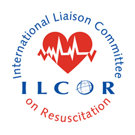Task Forces
See all task force members on the organizational chart
Advanced Life Support
Ian Drennan & Ari Moskowitz
The Advanced Life Support (ALS) Task Force focuses on revising the most up-to-date evidence on intra-arrest and post-arrest care. This includes medications, airway management and other advanced interventions during cardiac arrests, and immediate and ICU management of the post-arrest patient, including blood pressure and ventilation management and neuroprognostication. The evidence reviews conducted result in updated recommendations published on an annual basis.
Basic Life Support
Janet Bray and Nicholas Johnson
The Basic Life Support (BLS) Task Force continuously reviews the evidence focusing on all aspects of the first links in the Chain of Survival - recognition, CPR and defibrillation. This includes interventions aiming to improve recognition, bystander CPR rates, CPR performance, access to defibrillation and BLS in special circumstances. The Task Force conducts annual systematic reviews, scoping reviews or evidence updates to provide up-to-date treatment recommendations for guideline providers.
Education, Implementation and Teams
Adam Cheng and Kasper Lauridsen
The ILCOR Education, Implementation, and Teams Task Force (EIT) conducts systematic reviews and scoping reviews on questions related to resuscitation education and implementation science. The task force identifies and ranks questions by monitoring existing literature, reflecting on current clinical and teaching practice, as well as considering topics submitted by regional resuscitation councils. Evidence updates are routinely conducted to ensure that treatment recommendations reflect the most up to date literature. EIT questions are stratified into four content areas: training populations, faculty development, instructional design, and knowledge transfer and implementation.
First Aid
Therese Djarv & Matthew Douma
First Aid (FA) is the initial care provided for an acute illness or injury and includes preserving life, alleviating suffering, preventing further illness or injury, and promoting recovery. First aid can be initiated by anyone in any situation, including self-care. The task force members conduct systematic or scoping reviews and evidence updates on these and other important questions in FA and publishes those annually.
Neonatal Life Support
Gary Weiner and Anne Lee Solevag
The ILCOR Neonatal Life Support Task Force conducts systematic reviews and scoping reviews and evidence updates on questions related to resuscitation of the newborn infant. These reviews serve as the scientific scaffold for development of neonatal resuscitation algorithms and educational programs across the world. Areas of focus include best practices in preparing personnel and equipment for a birth, umbilical cord management, initial steps of resuscitation, significant emphasis on how to best inflate the newborn lung and effectively ventilate when needed as well as the less frequently needed steps of cardiac compressions and medications. The task force identifies and ranks questions by monitoring existing literature, reflecting on current clinical and teaching practice, consulting with a ~50 member of international experts in neonatal resuscitation, as well as considering topics submitted by regional resuscitation councils.
Pediatrics Life Support
Barney Scholefield and Jason Acworth
The ILCOR Pediatrics Life Support Task Force (PLS) addresses pediatric basic & advanced life support issues including cardio-pulmonary resuscitation; recognition & pre-arrest treatments of shock; non-arrest arrhythmias; physiologic monitoring during arrest and/or intra-arrest prognostication as well as special resuscitation situations like septic shock, congenital heart disease and trauma in pediatrics.
Evidence updates, scoping and systematic reviews on important pediatric resuscitation topics are conducted annually to provide evidence-based and timely updates with treatment recommendations to guide our partners from our respective resuscitation councils.
